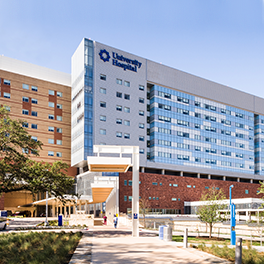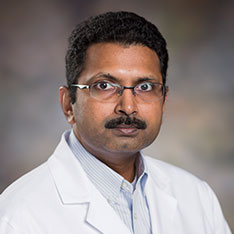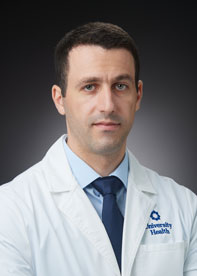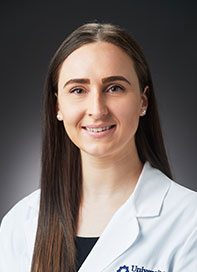Your digestive system consists of your throat, stomach, pancreas, gallbladder, liver and intestines. By combining all six structures and organs, your gastrointestinal (GI) tract is about 30 feet in length. If one thing goes wrong, it can impact your overall health.
Trusted Digestive Care
Our gastroenterologists diagnose and treat a wide range of digestive conditions, whether you’re experiencing mild symptoms or complex issues. They understand stomach and gut complications can be painful, so our experts are dedicated to offering comprehensive care.
Leaders in Minimally Invasive Endoscopic Procedures
University Health is the premier advanced therapeutic endoscopy program for South Texas, located in San Antonio.
These procedures offer a faster recovery and less anesthesia than traditional surgery. Our advanced therapeutic endoscopists perform more leading-edge endoscopic procedures than any other medical facility in South Texas, helping hundreds of adults and children.
One of the endoscopic techniques we offer includes endobariatrics therapy, which is a nonsurgical weight loss procedure.
Conditions We Treat
Our gastroenterologists can help treat anyone with GI conditions, including complex digestive, liver and pancreatic issues. Other conditions our specialists treat include:
- Achalasia
- Barrett’s esophagus
- Biliary duct stones
- Colorectal cancer
- Gallbladder diseases, like gallstones
- Gastrointestinal bleeding
- Gastroesophageal reflux disease (GERD)
- Hepatitis C
- Inflammatory bowel disease (IBD)
- Irritable bowel syndrome (IBS)
- Obesity
- Pancreatitis
Why University Health
We have state-of-the-art testing and diagnostics within University Hospital to perform the most advanced endoscopy and colonoscopy procedures. In fact, we are the only advanced endoscopy group in South Texas whose doctors are all fellowship trained. This means our specialists have extra training to ensure your comfort and safety while you receive treatment.
Pancreatic Cancer Screening Program
More than 67,000 Americans are estimated to be diagnosed with pancreatic cancer in 2025, with a 13.3% survival rate. Our team of gastroenterologists and advanced therapeutic endoscopists aims to expand that survival rate by catching pancreatic cancer sooner.
At University Health, we offer a unique pancreatic cancer screening program for individuals at a higher risk of being diagnosed with pancreatic cancer. Once a patient enters our program, our specialists will follow them throughout life to monitor their risk, hoping to increase survival rates.








